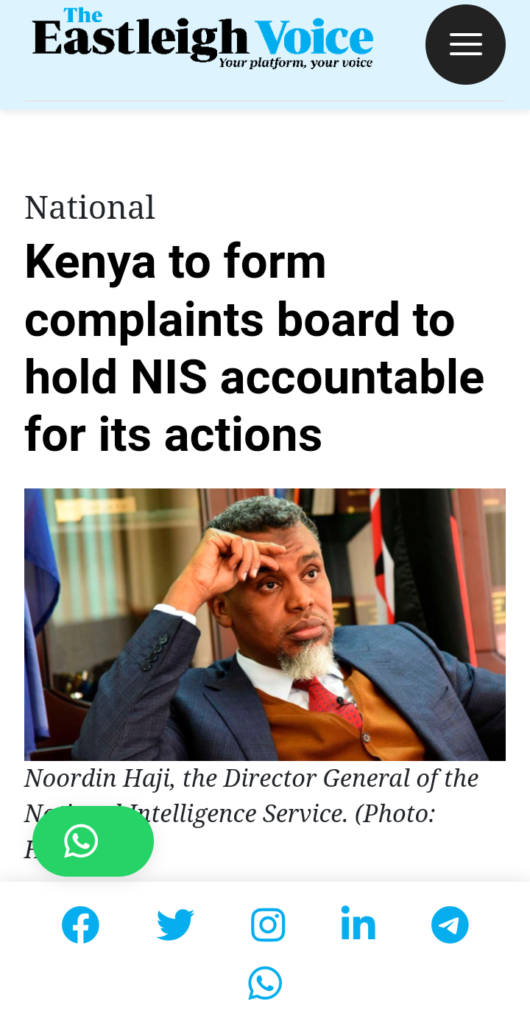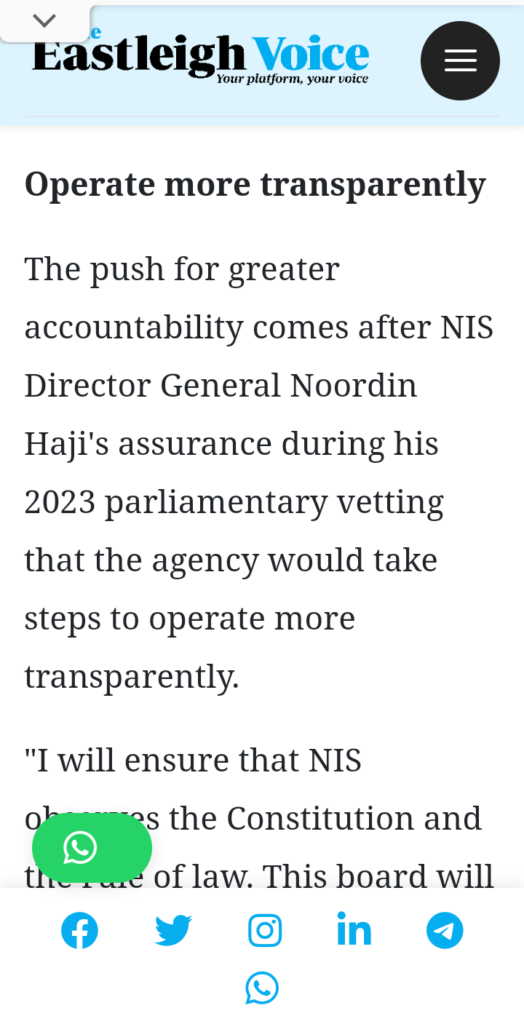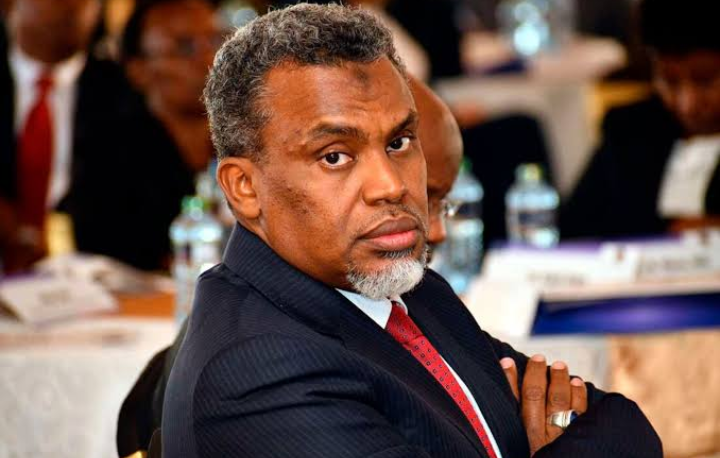The Public Service Commission (PSC) has taken the first step by announcing vacancies for the roles of chairperson and members of the newly formed Intelligence Oversight Complaints Board (IOCB).
This board, established under Section 66 of the NIS Act, 2012, will handle grievances lodged against the National Intelligence Service (NIS), its leadership, and personnel.
The chairperson must have a legal background, with at least a decade of experience in academia, legal practice, or other related fields.

The board will also consist of a High Court advocate, a retired senior intelligence professional, and a public servant with relevant expertise.
Push for transparency Calls for increased accountability gained momentum following NIS Director General Noordin Haji’s 2023 parliamentary vetting, during which he pledged to enhance openness within the agency.
“I will ensure NIS complies with constitutional requirements and the rule of law. This board will help address complaints effectively,” Haji stated.
During his vetting, Haji acknowledged that an NIS officer had been implicated in an extrajudicial killing.
The incident involved the disappearance of two Indian nationals and their driver, which led to charges against an NIS agent, a KWS officer, and members of the defunct DCI Special Services Unit.
While this case has gained widespread attention, human rights groups have voiced concerns about other potential abuses within the agency.

Although NIS officers are constitutionally required to uphold the Bill of Rights and good governance principles, many citizens remain unaware of avenues for reporting misconduct.
The Centre for Human Rights and Policy Studies (CHRIPS) has cautioned that unchecked discretionary powers within intelligence agencies could result in human rights violations.
CHRIPS further noted that the secrecy surrounding NIS operations makes it challenging to ensure accountability to the public.
The creation of the IOCB is viewed as a critical step towards aligning the agency’s powers with national and international legal frameworks.
The government is expected to allocate financial and logistical support to the board while ensuring the protection of witnesses who file complaints.
The NIS plays a significant role in safeguarding national security, conducting intelligence gathering, counter-intelligence, security vetting, and supporting crime prevention efforts.
However, the agency is legally barred from performing police duties, paramilitary operations, or actions serving political agendas.
Initially formed as the Special Branch in 1952, the NIS underwent major reforms, becoming the Directorate of Security Intelligence in 1986 and later the National Security Intelligence Service in 1999 under the NSIS Act.
Today, the agency operates independently under a defined legal framework, with oversight bodies like the IOCB ensuring adherence to constitutional and human rights standards.
As the board prepares to begin its work, there is hope that the NIS will embrace greater public accountability while ensuring compliance with both domestic and international legal obligations.





















Add Comment